
Statement
AKK: German National Statement – Peacekeeping and Human Rights
Erster Abschnitt des ArtikelsAKK: German National Statement – Peacekeeping and Human Rights
Excellencies, I would like to express my gratitude to the briefers for their impressive presentations. Germany is delighted to chair an Open Debate on this very important topic.
Eleanor Roosevelt was the only woman on the drafting team of the Universal Declaration of Human Rights. About the achievement of human rights, she famously said:
“The immediate test is not only the extent to which human rights and freedoms have already been achieved, but the direction in which the world is moving.”
That was in 1948.
Today, we have all reason to ask ourselves: is the world moving in the right direction? The answer is clear: The task that was handed to all of us: to make human rights universal, is far from complete.
- It will remain incomplete as long the universality of Human Rights is being questioned and undermined, even inside the United Nations;
- It will remain incomplete as long as borders are being violated and moved at will;
- It will remain incomplete as long as the freedom of speech and the freedom of assembly are illegally curtailed and withheld.
My main concern today is how Human Rights and Peacekeeping are related to each other. This is of high importance for the United Nations.
Ladies and gentlemen, when we look at war zones around the world, it is a notable fact that the vast majority of casualties are still civilians. Often they are intentionally targeted by the conflict parties.
As a defense minister, let me be very clear: Human Rights have to be a first concern in peace operations. They can never be subsided for operational effectiveness. Ultimately, military success is only possible as long as fundamental rights are firmly defended. And also in our current situation, during a pandemic, we have to be attentive towards the universal Human Rights of every individual human being.
If Human Rights are to mean something – anything – this Council has a role to play and a responsibility to fulfil. This Council has a special obligation to guarantee the protection of Human Rights in its very own UNUnited Nations Peacekeeping Operations. We need to dedicate significant resources to the Human Rights elements of these missions.
Fostering human rights is part of the capacity building and advisory functions of UNUnited Nations missions. This must happen in close cooperation with State authorities. The protection of human rights is essential to building resilient and inclusive societies – so they can move towards sustainable peace.
Dear colleagues, how Blue Helmets conduct their operations has a direct influence on how UNUnited Nations Peacekeeping – and the United Nations itself – is being judged by people in every corner of the world. Peacekeepers function as role models.
That’s why Human Rights aspects must be recognized from the very beginning: by already including them in the training and the evaluation of troops before they deploy.
I pledge today: Germany will make Human Rights training a mandatory element in all peacekeeping training efforts we provide to the United Nations. Just as we instruct and train our own German troops before they deploy.
Furthermore, later this year, Germany, as an Action for Peacekeeping (A4PAction for Peacekeeping) champion, will hold a High-Level Conference on Peacekeeping, Human Rights and the Protection of Civilians.
We want to deepen the debate on the issues at stake. We want to jointly develop practical proposals for the UNUnited Nations Secretariat and for all Troop Contributing Countries. The goal is to better implement the Human Rights tasks within operations.
We will also feed the results of two brand new German studies into this conference:
- one on the Protection of Civilians (POC) in Peacekeeping;
- the other one on how to increase the number of women in Peace Operations. Women are absolutely essential for operations! Only diverse teams can make Peacekeeping truly successful.
Finally, let me thank High Commissioner Bachelet, Special Representative Shearer and Dismas Kitenge for their dedicated work. Their efforts are particularly remarkable given today’s special conditions, where conflicts continue in spite of a pandemic – and in spite of the UNUnited Nations Secretary-General’s Appeal for Global Ceasefire. It is a sign of hope that, last week, the Security Council adopted a resolution in support of the Secretary-General’s appeal
Thank you.


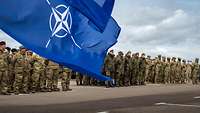
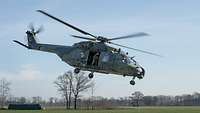
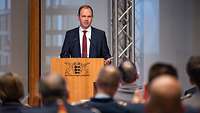
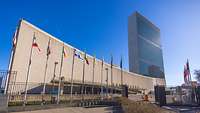
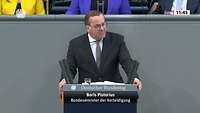
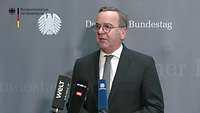
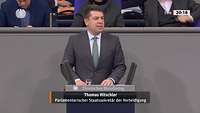
Inhalte teilen via